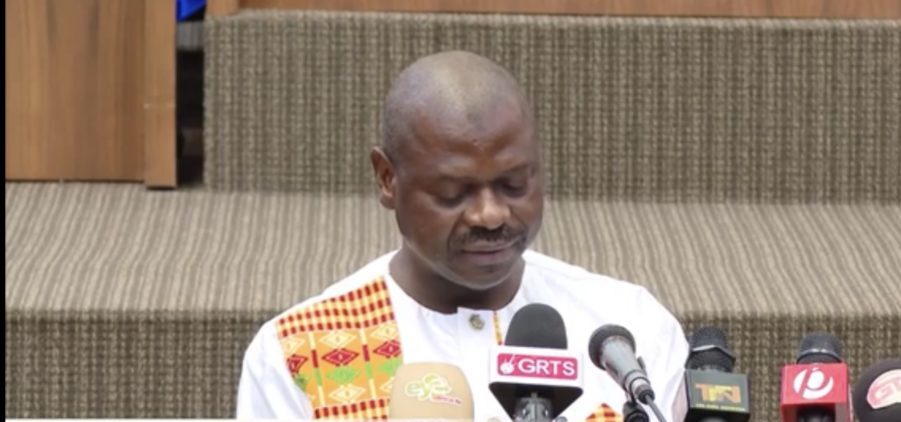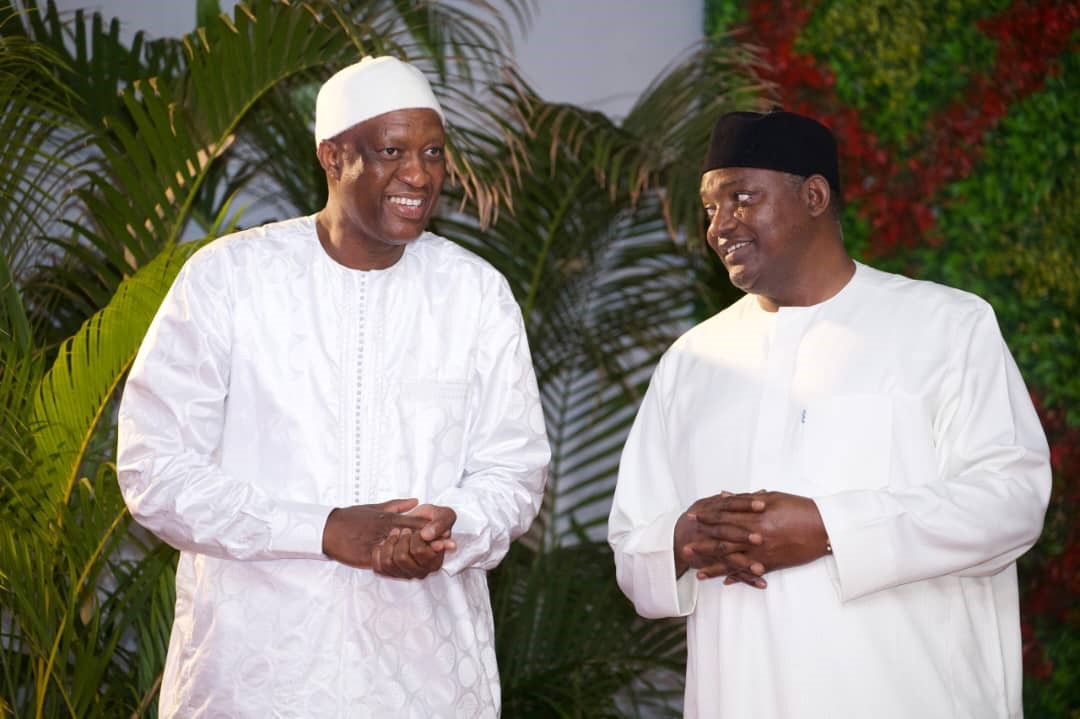By Kebba Ansu Manneh
The Honourable Minister of Finance and Economics Affairs has disclosed that The Gambia’s public debt as of September 2022, stood at ninety billion and seven hundred million dalasi (D90.7 billion). He noted that this increment of the public debt stock is due to foreign exchange rate loss on foreign debt stock and an increase in domestic borrowing.
Minister Seedy Keita made this disclosure at the National Assembly (NA) Chambers on Friday 2nd, December 2022, while presenting a 2023, Budget speech before Parliamentarians outlining government incomes, expenditures, debt services mechanisms, austerity measures, and financing of projects among other things.
“The public debt stock amounted to D90.7 billion as of the end of September 2022 compared to D83.8 billion in the same period in 2021. The increment of the public debt stock is explained by the Foreign Exchange rate loss on the foreign debt stock and increase in domestic borrowing amounting to GMD 3.2 billion and GMD 3.7 billion respectively,” Seedy Keita disclosed before the MPs.
He added: “However, the Government is still within the domestic borrowing target as approved in the 2022 national Budget. Of the total debt stock in 2022, domestic debt constitutes D39.7 billion, whilst external debt constitutes D51.0 billion.”
According to him, total government expenditure is projected to increase from D31.2 billion in 2022 to D35.4 billion in 2023, adding that this may increase to D42.8 billion due largely to ongoing government infrastructural projects among others.
“Total government expenditure is projected to increase from D31.2 billion in 2022 to D35.4 billion in 2023, and over the medium-term, it is expected to increase gradually to the tune of D42.8 billion.
The projected increase in total expenditure is largely attributed to an anticipated increase in capital expenditure due to the ongoing road projects; (urban roads such as Kanifing-Brufut; and rural roads such as Nuimi-Hakalang, SabachSanjal, etc.); the expansion of the Bertil-Harding Highway for the OIC Summit; and the new salary increase applied from 2022 to 2026,” Finance and Economics Affairs Minister delivered in 2023, Budget Speech.
He added that “as economic conditions remain fragile and vulnerable to shocks, the most recent Debt Sustainability Analysis by the IMF assessed the country to remain at high risk of debt distress with limited borrowing space. This requires continuous and coordinated policy efforts to lessen the risk. The current Medium Term Debt Strategy’s objective is encouraging for the strengthening of financing from both external concessional and longer-term domestic debt instruments, to improve the debt indicator thresholds and subsequently result in a more sustainable public debt path.”
The Finance Minister continued that total grants are anticipated to increase from D10.7 billion in 2022 to D14.6 billion in 2023, with a tendency for increment, adding that Budget Support grants will reach GMD 2.9 billion by 2026, from the GMD 2.7 billion expected in 2023.
To ensure fiscal sustainability and improve future conditions in terms of revenues and expenditure management, the Finance and Economics Affairs Minister disclosed that government will introduce series of reforms including: Development of a travel policy for the entire public sector to ensure value for money; Extension of performance contracts to all SOEs with a view to improving their financial viability, service delivery, and reducing fiscal risk to the budget; Review of the vehicle management plan by Riders for Health to rationalize costs; Strengthening of Public Investment Management through the institutionalization of medium-term Public Investment Programme for all sectors, and ensuring all public investments pass the Gambia Strategic Review Board selection criteria; Restructuring and rationalization of subvented agencies; Development of a Domestic Resource Mobilization Strategy to enhance revenue collection; Development of a Foreign Service Policy with the aim of rationalizing foreign missions; Finalization of the Vehicle Policy and commencement of implementation as a matter of urgency, in order to rationalize expenditure on the purchase of vehicles, fuel and maintenance.
This will be managed to address the concerns of the vulnerable—particularly existing drivers among other reform measures to be implemented in 2023, he added.





